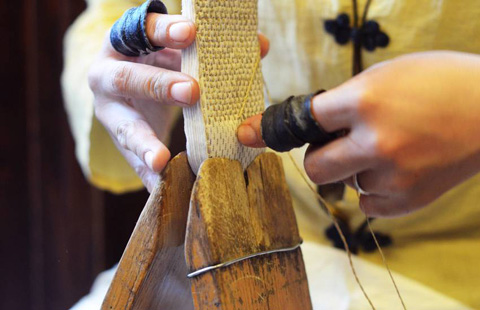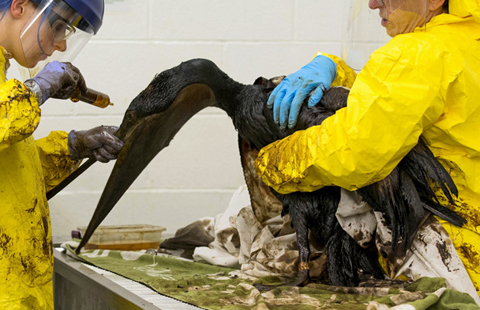Foreign policy not foreign: expert
Updated: 2015-05-28 23:44
By CHEN WEIHUA in Washington(China Daily USA)
|
||||||||
Some 110 Chinese graduate students studying in US universities began a three-day program on Wednesday evening in Washington, trying to understand how American foreign policy is made.
The Harry Harding Auditorium at the Elliott School of International Aff airs of George Washington University is only blocks away from the State Department and the White House, but keynote speaker David Rothkopf, CEO and editor of The Foreign Policy Group, told the students that foreign policy was not made at the State Department or White House.
"Foreign policy is not even foreign anymore. What we are talking about is global aff airs and global relations. Global relations are driven by individuals, communities that sprang up on the internet," he told students in the opening session of the 2015 US Foreign Policy Colloquium held by the National Committee on US-China Relations (NCUSCR).
But instead of talking about foreign policy, Rothkopf, who's latest book is entitled National Insecurity: American Leadership in an Era of Fear, focused pretty much on the transformative changes in this world, telling students that some say the biggest development in the world in the last 25 years was the end of the Cold War or the September 11 terrorist attacks on the US.
"I think neither of them is the biggest development," said Rothkopf. He instead cited the growing number of smart phones as the major change.
"We are at a time that for the first time in human history every single individual on the planet will be effectively connected with a man-made system," he said.
Unlike the saying that China-US conflict is around the corner, Rothkopf believes China and US are completely interdependent despite the fact that they may not like each other or agree with each other.
Zhou Jingxing, chief of the political section at the Chinese embassy in Washington, talked about the importance of the spirit of cooperation, respect and sense of responsibility in China-US relations.
"We have a lot of issues in today's world, and we must cooperate with each other, work together to solve those issues," he said.
"Students come from various Chinese provinces and are studying in various universities across America. So in this room, new friendships are being made," said Carla Hills, chairwoman of the NCUSCR and a former US Trade Representative.
"Making progress in the relationship begins with better understanding between the two countries," said Bruce Dickson, director of the Sigur Center for Asian Studies at the George Washington University.
Zhang Linna, who just graduated from Northwestern law school, said she learned about the program from a friend. "I believe it will help open my eyes to a field that I know little about and be inspired," said Zhang.
chenweihua@chinadailyusa.com

 Ten photos you don't wanna miss - May 28
Ten photos you don't wanna miss - May 28
 Top 9 smartphone-driven gadgets
Top 9 smartphone-driven gadgets
 Photographer captures Great Wall at night
Photographer captures Great Wall at night
 Ancient shoe brand that 'fast-tracks promotion'
Ancient shoe brand that 'fast-tracks promotion'
 Play a melody while walking on musical cliff road
Play a melody while walking on musical cliff road
 Russians battle it out in bathtub race
Russians battle it out in bathtub race
 California oil spill takes toll on marine mammals
California oil spill takes toll on marine mammals
 Ten photos you don't wanna miss - May 27
Ten photos you don't wanna miss - May 27
Most Viewed
Editor's Picks

|

|

|

|

|

|
Today's Top News
Foreign policy not foreign: expert
China makes splash at book fair
Brazil ready to collaborate over FIFA graft probe
Rick Santorum announces second White House run
Massive arson fire suspect arrested in Los Angeles
US senator in Cuba says normal relations 'weeks away'
Li seeks 'dual track' for Chile exchanges
China cautions US over
South China Sea
US Weekly

|

|







